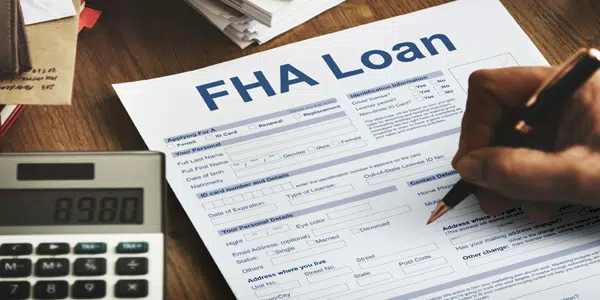Florida FHA Loan is a mortgage backed by the Federal Housing Administration (FHA) that grants homebuyers to purchase a house with a lower down payment and credit score than regular loans. FHA loans are famous among first-time homebuyers and those with limited financial resources.
About Florida FHA Loan:

In response to the struggles of the Great Depression, the US government created the Federal Housing Administration (FHA) in 1934. The goal of this program was the same as it is today – to allow low-income borrowers to buy and own a home.
As a federally-insured program, applying and qualifying for an FHA loan mostly stays the same from state to state. There is, however, one major difference – the limit on how much you can borrow varies depending on where you live.
How Do Florida FHA Loans Work?
FHA home loans are mortgage loans insured against default by the Federal Housing Administration. Because FHA loans protect lenders as opposed to any defaults on payments, they can occasionally offer lower interest rates to prepared FHA loan borrowers.
Florida FHA Loan Benefits:
FHA loans are appealing to first-time home buyers for many reasons, including:
Lower Interest Rates:
FHA borrowers often get lower interest rates than conventional borrowers.
Flexible Credit Requirements:
Because the federal government backs the loan, lenders can have more flexible credit requirements – you can approve with a score as low as 500.
Smaller Down Payment:
The average normal loan wants a down payment of at least 20 percent – FHA loan down payments could be as low as 3.5 percent.
While there are various benefits, there are also a few downsides you’ll want to consider. For instance, FHA loans come with higher insurance premiums than conventional loans.
Eligibilities For Florida FHA Loan:
While Florida FHA loans are popular among first-time home buyers, anyone can apply for this affordable mortgage option if they:
- You are at least older than 18 years of age.
- Can show proof of income (pay stubs, tax returns)
- Plan to occupy the house as a primary residence
- It would if you had a debt-to-income ratio of less than 50% (this may vary from lender to lender)
Whether or not you qualify for an FHA loan is more complex than a simple yes or no answer. Remember that while the government insures these loans, they had issued by private lenders. Individual lenders can have different lending requirements, mortgage rates, closing costs, and other fees, so be sure to do your housework to find an FHA-approved lender near you.
How to Apply for Florida FHA Loan:
Find a Lender:
The starting step in the process is the get in contact with a local FHA-approved lender. You can work with a direct lender, such as a private mortgage broker or a bank. Unlike a bank, mortgage brokers like those at Associates Home Loan of Florida have access to a large pool of lenders and loan programs to help you get the best outcome.
Get Pre-Approved:
While not necessary, getting pre-approved makes the application process go more smoothly and shows home sellers that you’re a serious buyer. Learn more about the mortgage pre-approval process here.
Complete the Application:

To complete an FHA loan application, your lender will need the following:
- Your social security number
- Verification of employment (W2, paystubs)
- Tax returns
- Appraisal documentation
- A credit report on all borrowers
- Proof of past rent/mortgage payments
Understanding The Real Cost of A Home:
Just because it’s easier to qualify for an FHA loan than a traditional mortgage doesn’t mean a type of mortgage is right for you. There’s a lot that you’ll want to consider before you apply, including insurance payments, closing costs, and additional fees.
Tips For Paying Your Down Payment:
While FHA loans require much lower down payments than conventional mortgages, that 3.5% or 10% down can still be a big expense, especially for younger buyers who have yet to have time to grow their savings.
Luckily, the Department of Housing & Urban Development is flexible regarding acceptable down payment sources. In addition to money from a checking or savings account, you can also use:
- Cash on hand (as long as you provide a written explanation of how you acquired the cash)
- Stocks and bonds
- Retirement accounts
- Gifted funds
It’s not uncommon for parents, in-laws, and other relatives to gift down payment funds. As long as they don’t expect repayment, that money can use to cover the entire down payment cost on an FHA loan.
Just because you can use a family gift to cover 100% of your down payment doesn’t mean you should.
Remember, you will deal with individual private lenders, not the government. If you do not put any of your money into a down payment, that’s a red flag telling potential lenders that you’re more likely to default. Even if you have generous family members, practicing smart saving habits is still a good idea to contribute some of your funds and avoid paying mortgage insurance.
Closing the FHA Loan in Florida:
After you approve an FHA loan in Florida, closing the loan is time. Here’s what to expect:
Finalizing the loan documents:
You’ll review and sign the final loan documents, including the loan agreement, mortgage note, and closing disclosure.
Paying closing costs:
You’ll need to pay closing costs, including fees for the appraisal, title search, and lender fees.
Closing the loan and receiving the keys to your new home:
Once the loan is closed, you will take the keys to your new home.
Making payments on your FHA loan:
You must make orderly payments on your FHA loan, including principal, interest, and mortgage insurance premiums.
Conclusion:
Florida FHA Loan Making Homeownership Affordable is an informative article that provides a step-by-step guide on obtaining an FHA loan in Florida. The article covers important topics such as eligibility requirements, loan limits, and the application process.
FAQs:
3.5% Down Payment, and it can be a gift. Seller concessions of up to 6% are allowed—credit Scores as Low as 580.
Primary benefits of an FHA loan include lower credit score requirements than other mortgages and lower down payment requirements for many homebuyers. These benefits are the same in Florida as anywhere else in the country.
There are no minimum income requirements for FHA loans.
It takes over 47 days to close on an FHA loan. FHA refinances are faster and take around 32 days to close on average.
The prior 2022 Florida conforming loan limits had a loan limit of $647,200 for a single-family home, and the new Florida 2022 conventional loan limits have increased to $715,000.